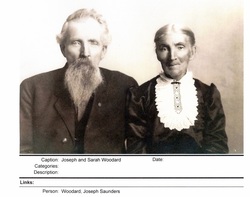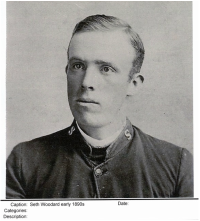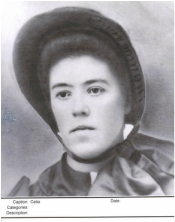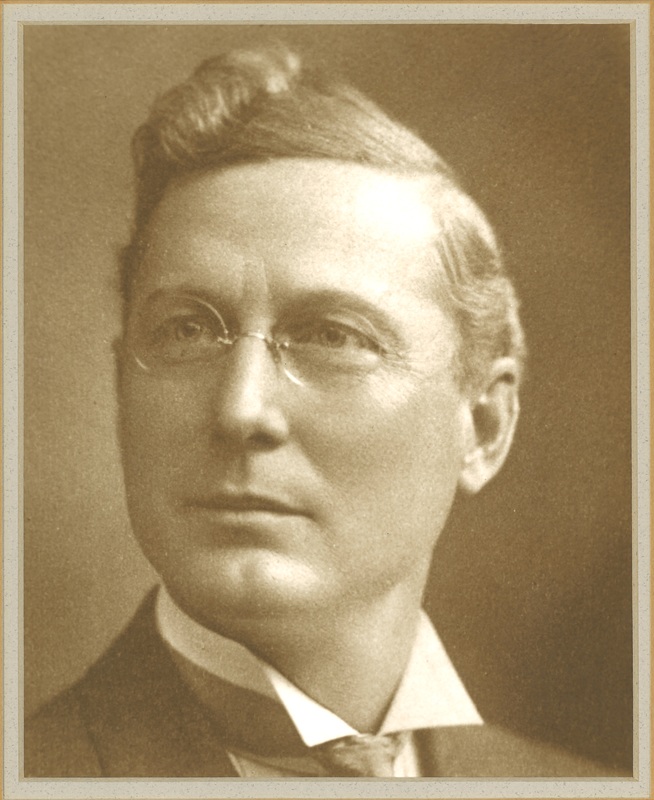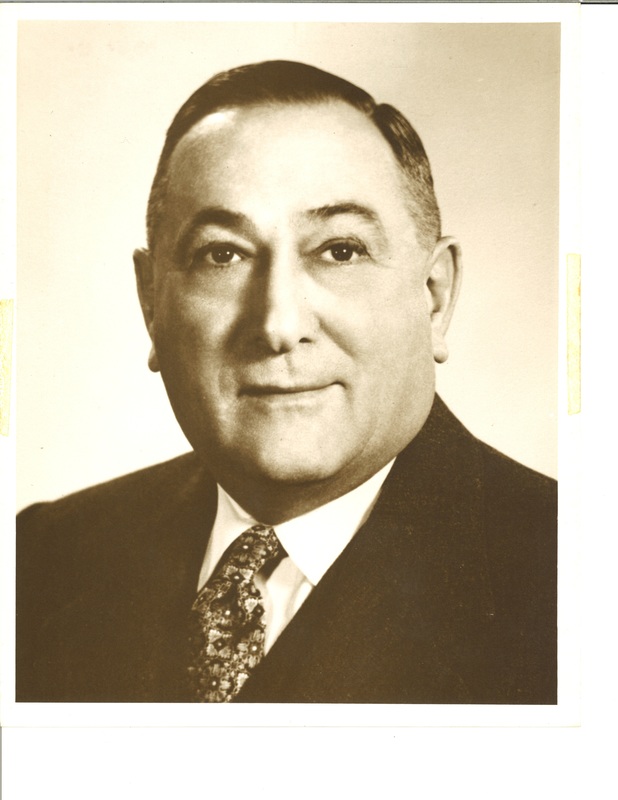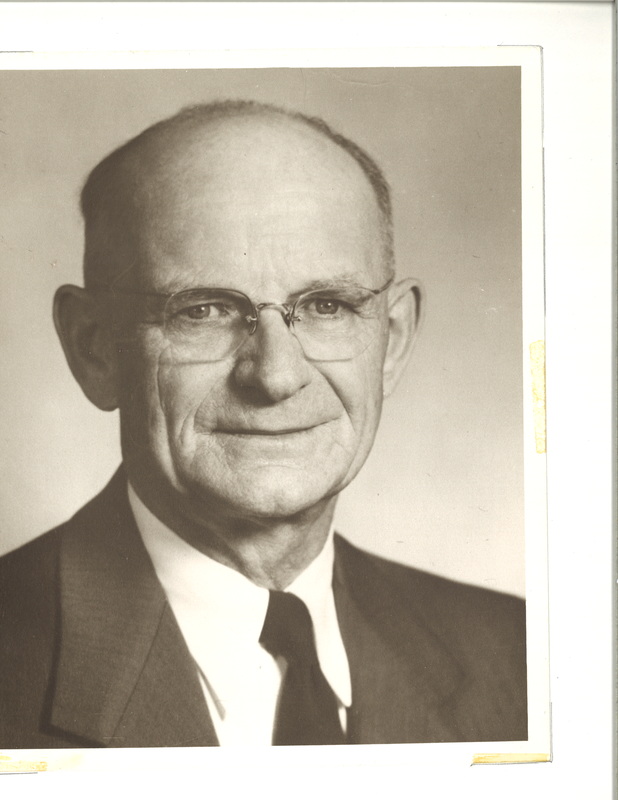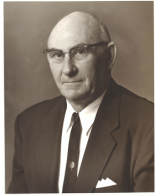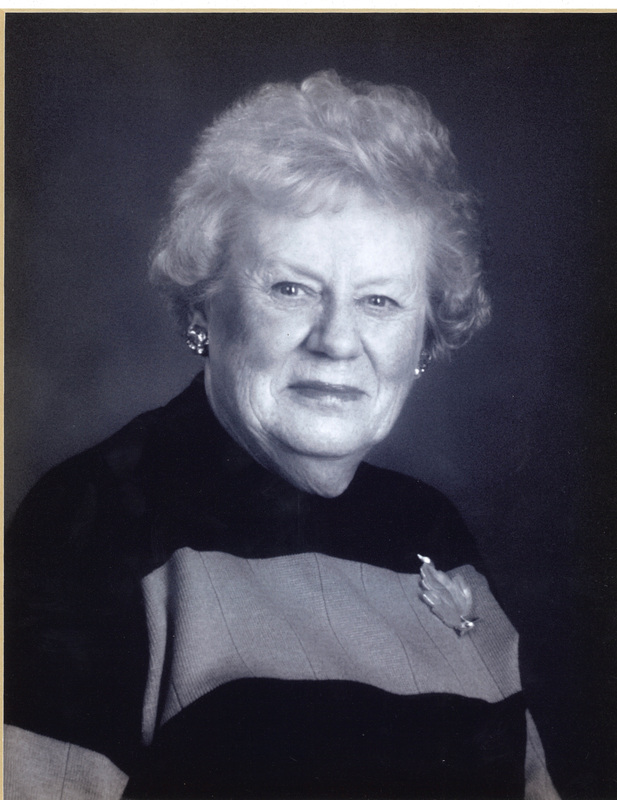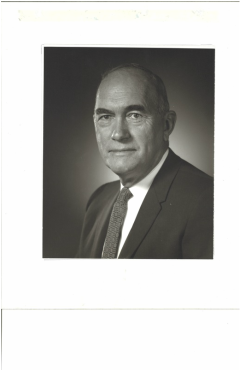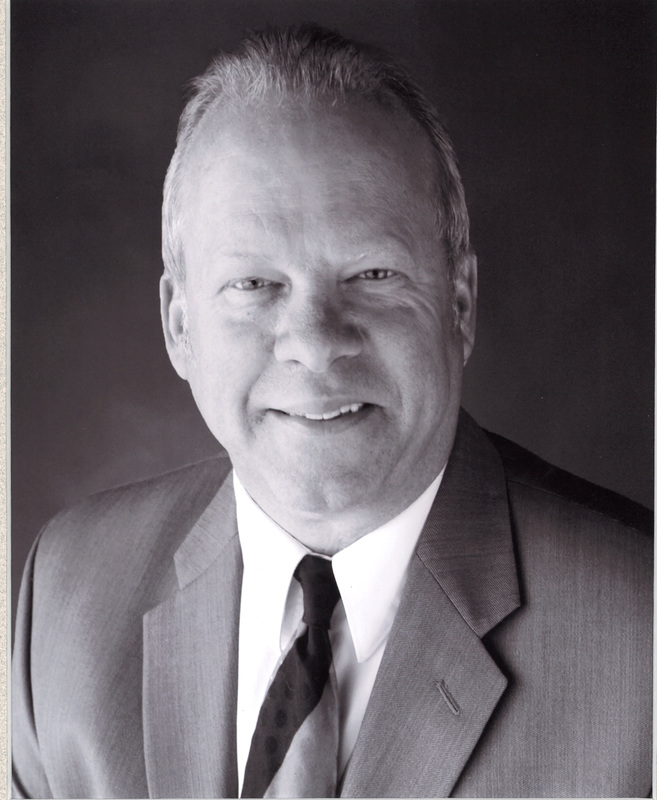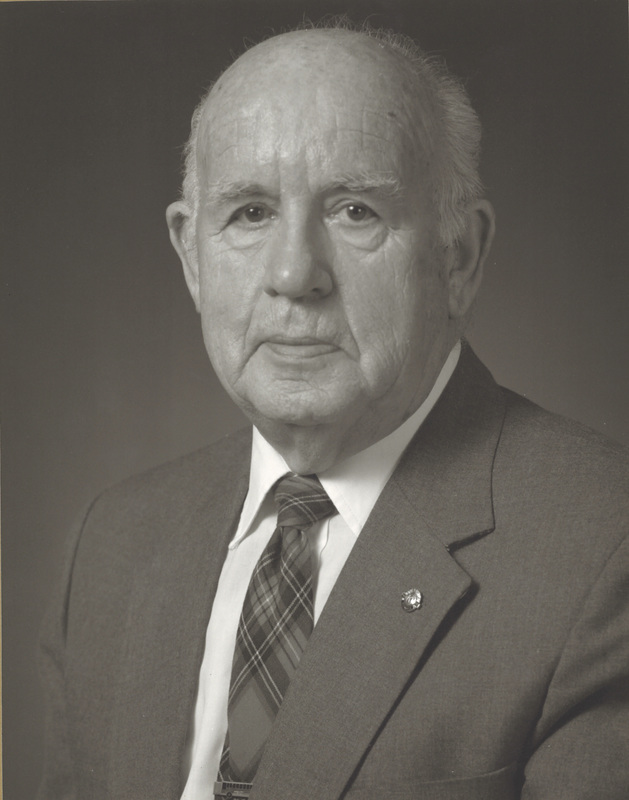Many important people and families contributed to the origin and livelihood of Millwood.
Joseph S. and Sarah Woodard and their children traveled by wagon from Kansas in 1882. They spent the first winter in Garfield with Sarah’s brother who worked for NPRR. The Woodards arrived in Spokane County in 1883 and bought land in the Spokane Valley from the Railroad for $5 an acre on a long-time contract. J. S. Woodard was also a civil war veteran. Their home was located on Argonne and Fredrick.
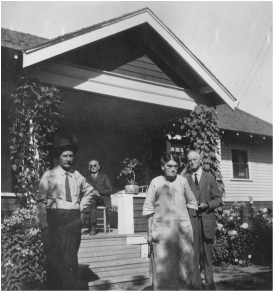 Harry and Mary Salmons
Harry and Mary Salmons
Henry Salmons Sometime after his 1856 birth in England, Henry Salmons settled in Kansas with his parents. In 1881, tired of drought and the occasional cyclone, three families, including Mr. Salmons, obtained a stock car for their animals and travel by train to Spokane. After farming on rented land, Mr. Salmons bought 90 acres at $45 an acre. Part of this land was later sold and became the town site of Millwood.
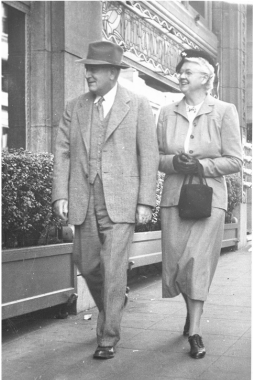
Chester Averill Buckland
birth November 6, 1887, Appleton, Outagamie, Wisconsin
death April 7, 1967, Spokane, Washington
Kathleen Marsh Kidder
birth February 8, 1897 Chicago, Illinois
death June 23, 1978 Spokane, Washington
Marriage December 10, 1919
Chester (Buck) Buckland was born and raised in Appleton, Wisconsin where he also studied economics at Lawrence College. He came to Millwood in 1911 as a laborer to help complete the construction of the Inland Empire Paper Co. He was then promoted to rewinder in the finishing room; later was shipping clerk, foreman of the finishing room, purchasing agent, assistant general manager and general manager. In 1950 he became president of the company. Chet retired in 1955 after 44 years with the firm.
During WWI Chester Buckland served in the 146th Field Artillery, Army of Occupation. A pottery urn found in his house on Liberty includes the following text: Sgt. C. A. Buckland, Battery E, 146th Field Artillery. In action at: Marne Defensive, Marne Offensive, St. Miheal Offensive, Meuse-Argonne Offensive.
Chester Buckland served as Millwood's second mayor from 1939 until 1952. He belonged to the Rotary Club of Spokane, American Legion Post 9, Beta Theta Pi fraternity, Millwood Presbyterian Church, West Valley school board and the local draft board. Chet was also a founding member of the Concordia Masonic Lodge, which met in the paper mill's break room before the Masonic hall was built where it currently stands on Argonne.
birth November 6, 1887, Appleton, Outagamie, Wisconsin
death April 7, 1967, Spokane, Washington
Kathleen Marsh Kidder
birth February 8, 1897 Chicago, Illinois
death June 23, 1978 Spokane, Washington
Marriage December 10, 1919
Chester (Buck) Buckland was born and raised in Appleton, Wisconsin where he also studied economics at Lawrence College. He came to Millwood in 1911 as a laborer to help complete the construction of the Inland Empire Paper Co. He was then promoted to rewinder in the finishing room; later was shipping clerk, foreman of the finishing room, purchasing agent, assistant general manager and general manager. In 1950 he became president of the company. Chet retired in 1955 after 44 years with the firm.
During WWI Chester Buckland served in the 146th Field Artillery, Army of Occupation. A pottery urn found in his house on Liberty includes the following text: Sgt. C. A. Buckland, Battery E, 146th Field Artillery. In action at: Marne Defensive, Marne Offensive, St. Miheal Offensive, Meuse-Argonne Offensive.
Chester Buckland served as Millwood's second mayor from 1939 until 1952. He belonged to the Rotary Club of Spokane, American Legion Post 9, Beta Theta Pi fraternity, Millwood Presbyterian Church, West Valley school board and the local draft board. Chet was also a founding member of the Concordia Masonic Lodge, which met in the paper mill's break room before the Masonic hall was built where it currently stands on Argonne.
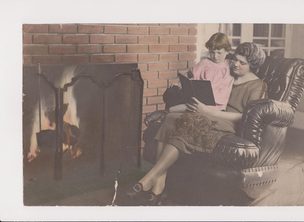 Kathleen reading in the living room
Kathleen reading in the living room
Chet married Kathleen Marsh Kidder in 1919. Her family moved to Otis Orchards from Illinois when she was a girl. Her best friend was Mary Match who taught third grade at Millwood Elementary for many years. Kathleen attended Washington State College in Pullman where she was a founding member of Kappa Kappa Gamma sorority. Chet and Kathleen lived in Otis Orchards with her parents before the Millwood house was built in 1923. Their first daughter, Jean Kathleen (Green) was born in 1920. Twins Sara Lois (Creger) and Mary Louise (Larson) were born in 1927. All three daughters attended Washington State College and married beaus they met there.
Chet and Kathleen remained together in the Millwood house until he passed away in 1967 and she in 1978. The house was then occupied by daughter Jean Buckland Green and grand daughter Sally Green. Jean passed away in 2005. Four years later Sally's sister, Barbara Green St.Clair, and husband, Jack St.Clair, retired from Gig Harbor, WA and joined Sally in the Buckland house.
Chet and Kathleen had nine other grandchildren: Linda, Becky, Julie, Maryann and Liz Larson, daughters of Mary Buckland Larson and Chet, Doug, Sara and Ellen Creger, children of Sally Buckland Creger.
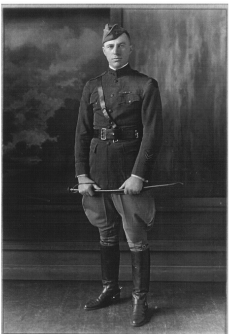
Waldo E Rosebush graduated from Alfred University, Alfred, NY in 1909. He began his career as a clerk with the Patten Fine Paper Company in Wisconsin. He left there to join Gen John J. Pershing on his expedition against Pancho Villa in Mexico in 1916. He served In World War l in France where he became a major. He received a Pershing Merit Citation with Purple Heart. In November 1919, he came to Millwood as assistant general manager for Inland Empire Paper Co. He was named general manager in 1921 and served in that Position until April, 1936.
Waldo Rosebush is probably most widely known in the Spokane area for his historical writings. In the early 1930's, he edited two major series of articles for the Spokesman Review Newspaper named "The Valley of the Sun". The articles In each series detail Spokane Valley history and are either written by early valley settlers themselves or by someone who had interviewed an early settler. In 2000, this collection of articles remains one of the most Important sources of Spokane Valley history available. At the time of his death In 1961, Mr Rosebush was a member of the board of the Eastern Washington State Historical Society.
Mr Rosebush was an avid gun collector, amateur gunsmith and inventor. This "modest man provided valuable counsel and assistance in assembling, restoring, and preserving" The Eastern Washington State Historical Society's Gun Collection which was on display for many years In the Cheney Cowles Memorial Museum, Spokane, Washington. (Dedication, "American Firearms and the Changing Frontier ") He presented his personal gun collection to the University of Wisconsin Historical Museum sometime around 1961.
His interest In history and guns lead naturally to his two major books "Frontier Steel," tells the story of military weapons used in the conquest of the west. It talks of the Black Hawk war through the Mexican war and the Northwest Indian battles. It Includes a stirring account of Colonel Steptoe's defeat Near Rosalia, Washington in May 1858. "American Firearms and the Changing Frontier" explains the basic principles of firearms in general. It then follows the improvements and advantages of specific weapons and the impact these had on United States history up until about 1900. Although these two books have long been out of print, judging by their price and availability as used or collectors books, they continue to be appreciated in 2000.
Mr Rosebush's old hometown of Alfred also benefited from his civic mindedness and generosity. In his will, Waldo Rosebush left a small bequest saying, "I Wish this income to be used for a music festival In the Village of Alfred, N Y on some suitable day each year, say about commencement time".
As the 1930's depression progressed, financial pressures on The Inland Empire Paper Company reached a point where reorganization was necessary to keep it in operation. In April, 1936, Waldo Rosebush resigned as general manager. He went back to the military for a vocation and served the army as a civilian in Alaska and the Pacific before retiring to Appleton, Wisconsin. He would not, however, sell his beloved house in Millwood. He rented it to a local family and maintained his voting residence there. He returned to Millwood annually to vote and visit with his many friends in the area.
Waldo Rosebush is probably most widely known in the Spokane area for his historical writings. In the early 1930's, he edited two major series of articles for the Spokesman Review Newspaper named "The Valley of the Sun". The articles In each series detail Spokane Valley history and are either written by early valley settlers themselves or by someone who had interviewed an early settler. In 2000, this collection of articles remains one of the most Important sources of Spokane Valley history available. At the time of his death In 1961, Mr Rosebush was a member of the board of the Eastern Washington State Historical Society.
Mr Rosebush was an avid gun collector, amateur gunsmith and inventor. This "modest man provided valuable counsel and assistance in assembling, restoring, and preserving" The Eastern Washington State Historical Society's Gun Collection which was on display for many years In the Cheney Cowles Memorial Museum, Spokane, Washington. (Dedication, "American Firearms and the Changing Frontier ") He presented his personal gun collection to the University of Wisconsin Historical Museum sometime around 1961.
His interest In history and guns lead naturally to his two major books "Frontier Steel," tells the story of military weapons used in the conquest of the west. It talks of the Black Hawk war through the Mexican war and the Northwest Indian battles. It Includes a stirring account of Colonel Steptoe's defeat Near Rosalia, Washington in May 1858. "American Firearms and the Changing Frontier" explains the basic principles of firearms in general. It then follows the improvements and advantages of specific weapons and the impact these had on United States history up until about 1900. Although these two books have long been out of print, judging by their price and availability as used or collectors books, they continue to be appreciated in 2000.
Mr Rosebush's old hometown of Alfred also benefited from his civic mindedness and generosity. In his will, Waldo Rosebush left a small bequest saying, "I Wish this income to be used for a music festival In the Village of Alfred, N Y on some suitable day each year, say about commencement time".
As the 1930's depression progressed, financial pressures on The Inland Empire Paper Company reached a point where reorganization was necessary to keep it in operation. In April, 1936, Waldo Rosebush resigned as general manager. He went back to the military for a vocation and served the army as a civilian in Alaska and the Pacific before retiring to Appleton, Wisconsin. He would not, however, sell his beloved house in Millwood. He rented it to a local family and maintained his voting residence there. He returned to Millwood annually to vote and visit with his many friends in the area.
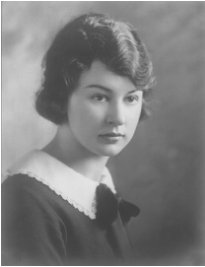
Francine Butler Rule
Francine Butler Rule's memories collected by Kay Brown, June 25, 1996
Francine Butler Rule's recollections of Waldo E Rosebush
Francine Butler Rule's memories collected by Kay Brown, June 25, 1996
Francine Butler Rule's recollections of Waldo E Rosebush
The Mayors of Millwood
